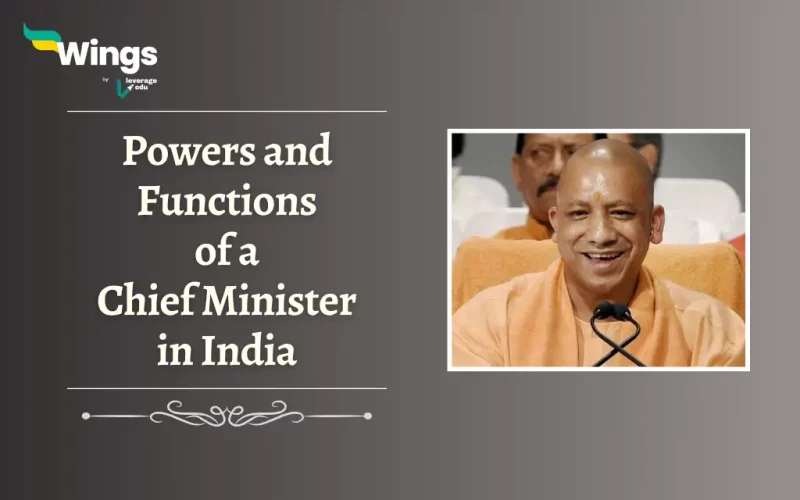In India, the Chief Minister is an important part and the Head of the State Government. Moreover, they are tasked with forming the Council of Ministers which is essential for governance. Additionally, the Chief Minister takes hold of policymaking, hence managing the implementation of State-level schemes and initiatives. Furthermore, they need to be good administrators as they coordinate with different departments hence making sure that there are efficient public services. Moreover, similar to a State’s Executive leader, they represent the Government in the legislature and steer debates and legislative processes. Read on to learn more about the Powers and Functions of a Chief Minister in India!
Table of Contents
1. In Relation to State Legislature
The Chief Minister as the leader of the House, has the following powers:
- Advises the Governor on summoning and ending State Legislature sessions.
- Moreover, they can suggest dissolving the Legislative Assembly to the Governor of the State.
- They can announce Government policies in the House.
Also Read: How is a Chief Minister Elected in India?
2. In Relation to the Governor
Furthermore, the Chief Minister is the main link between the Governor and the Council of Ministers. Their duties are as follows:
- They communicate all the decisions of the Council of Ministers and legislative proposals to the Governor.
- In addition, they provide requested information about State affairs and proposed legislation to the Governor of the State.
- If required by the Governor they also present any decision for consideration made by a Minister to the Council of Ministers.
Additionally, the Chief Minister advises the Governor on appointing key officials such as the Advocate General, Chairman, Members of the State Public Service Commission, State Election Commissioner, etc.
Also Read: How Many Chief Ministers Did India Have Till 2024?
3. In Relation to Council of Ministers
The Chief Minister holds significant powers as the Head of the State Council of Ministers:
- The Governor appoints ministers based on the Chief Minister’s recommendations.
- The Chief Minister decides on ministerial portfolios and can change them.
- In cases of disagreement, the Chief Minister can request a minister’s resignation or advise the Governor to dismiss them.
- Presides over Council meetings and influences decisions.
- Moreover, guides, directs, controls, and coordinates the activities of all ministers.
- The Chief Minister’s resignation or death dissolves the Council of Ministers. Additionally, the resignation or death of another minister creates a vacancy that the Chief Minister may choose not to fill.
Also Read: 16 Powerful Female Chief Ministers in India
Other Powers and Functions of a Chief Minister
The Chief Minister holds different important roles in the State administration:
- Chairperson of the State Planning Board.
- They rotate as Vice-Chairperson of Regional Councils yearly.
- Member of the Inter-State Council and NITI Aayog’s Governing Council.
- Chief Spokesperson of the State Government.
- Crisis manager-in-chief during Emergencies.
- Meets with various groups to address their issues.
- Leader of the ruling party.
- Political Head of the Services.
Despite this, the Governor’s discretionary powers somewhat limit the Chief Minister’s role, authority, and influence in the State Administration.
Related Blogs
Lastly, we hope you liked our blog and gained an understanding of the Powers and Functions of Chief Minister. Moreover, you may even read more blogs and empower yourself with knowledge regarding Civics and Polity!
 One app for all your study abroad needs
One app for all your study abroad needs













